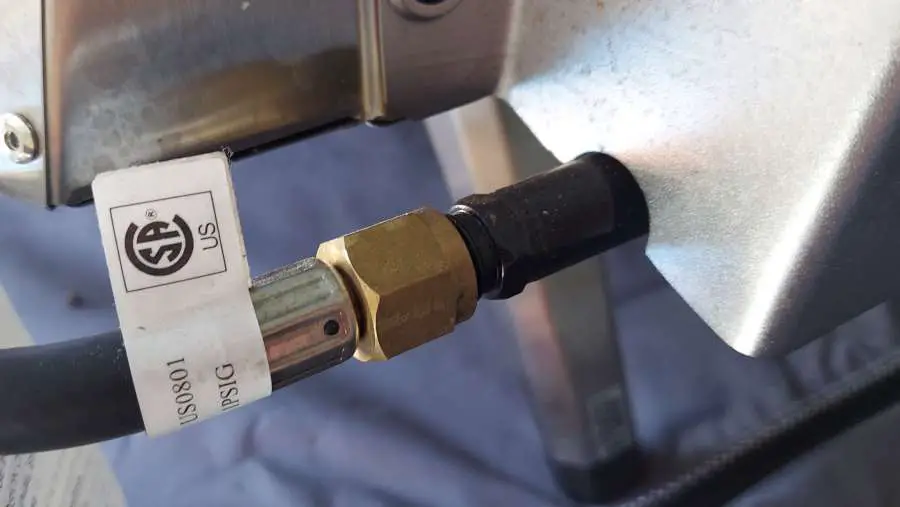Last Updated on May 23, 2024 by Dan Campbell
Looking to purchase a new generator but you’re not sure what fuel type to choose? Gasoline, Propane, Diesel, Hybrid? Depending on your situation, each fuel has advantages and disadvantages. So I have gone ahead and laid out a simple list of pros and cons for each type. Make sure to check out my other posts – Gasoline Generators: Pros and Cons, as well as Propane Generators: Pros and Cons.
Diesel generators have always been a popular choice for backup power for homes and businesses. They have many benefits over other generator types, such as their low maintenance requirements, their efficiency, and long life. However, you should also consider some potential drawbacks of using diesel generators before making any final decision.
Pros of Diesel Generators
Highest Output Power
Diesel generators are capable of producing the most power with the same volume of fuel when compared to gasoline or propane. Diesel fuel has the highest energy density when compared to gasoline or propane, and in terms of BTUs, diesel produces around 140k BTUs per gallon, whereas gasoline produces around 120k and propane only 91k. So if you’re looking for a generator that can produce the most power, such as one to power a home or construction site, diesel will be able to produce the most kilowatts.
Very Fuel efficient
Similar to total power output, diesel fuel is more energy-dense than gasoline or propane, which means that diesel generators can run for longer periods of time on the same amount of fuel. If storage is an issue diesel is much preferable to gasoline due to its efficiency. Along with efficiency, diesel generators can run continuously for much longer periods of time, unlike gasoline which is usually recommended to not run for more than 2 to 3 days. So depending on how you plan to use it if you need to have it running continually for a week, a diesel generator is a much better option than gasoline.
Less Maintenance
Diesel generators are well-known for their longevity and reliability, which means they can operate for years without significant maintenance. Unlike gasoline generators, diesel engines do not require spark plugs or carburetors, which are usually parts that require regular maintenance. Overall, the durability and reliability of diesel generators make them a great option for someone who is looking to get a generator for backup power.
Capable of Extreme Weather
Diesel generators rely on compression to burn fuel which makes them able to withstand harsh environments, such as high temperatures, dust, and moisture. They are well-suited for use in various locations, including construction sites with a lot of dust, remote locations where weather can be unpredictable, or high-temperature climates.
Easily Accessible Fuel
Diesel fuel is generally easy to come by at most gas stations, and depending on where you live, can be much cheaper than gasoline. It’s also great in emergency situations where there is a gas shortage since most people will be in line for gasoline and not diesel. So if you’re looking to buy a generator for backup in case of an emergency, this may be a large factor since you will have a much higher chance of being able to find diesel over gasoline.
Much Safer
Diesel fuel is far less flammable than gasoline or propane, making it a much safer fuel to store. Depending on your county, you may not even be able to store multiple gallons of gasoline whereas diesel is more commonly accepted. If you’re planning on storing large quantities of fuel for a backup generator, diesel is a much safer option than gasoline.
Possibly Cheaper Overtime
Diesel generators are typically much more expensive upfront than gasoline or propane generators, however, depending on your location the fuel can be drastically cheaper. This may not always be the case though, such as where I live diesel is usually much more expensive.

Cons of Diesel Generators
Extremely Heavy (Rarely Portable)
Diesel generators typically weigh hundreds of pounds and are not very portable. If you are looking for a portable generator, diesel generators are not a good option. While most diesel generators can be marketed as portable, this is usually because they have wheels on them, but good luck moving them on your own. I would only recommend diesel generators for permanent locations or where they can be transported via trailer.
High Upfront Cost and Low Availability
While diesel generators can cost less over the course of their lifetime due to potentially lower fuel cost, the upfront cost of a diesel generator is usually much higher than that of a gasoline or propane generator of a similar wattage rating. They are also a lot less common than gasoline or propane generators, so finding one for sale can be difficult.
Smaller Tank Size
Diesel generators have a small tank size that limits the time the generator can run before needing to be refueled. That can be a concern for scenarios requiring long run times, such as emergency backup power systems or off-grid living, however, even with their limited tank size, due to the fuel efficiency, they require less refueling than gasoline. And because both gasoline and diesel will have limited tank sizes, this is really only an issue if you’re comparing diesel to propane for a whole home backup since propane will usually be connected to a 200-500 gallon tank.
Louder (Kind of)
One potential drawback of diesel generators is that they produce the most noise when measured at idle. That can be a particular concern in residential areas, where the noise of a diesel generator will disturb any neighbors close by. However, while they are louder at idle, under load they typically perform quieter when compared to gasoline or propane generators running at a similar load.
Medium Fuel Shelf Life
While diesel generators typically have a much longer life than gasoline or propane generators, the fuel’s shelf life is only around 1 year. While this is much better than gasoline, with a shelf life of only 6 months, it cannot measure up to propane’s shelf life which is indefinite when stored properly. Over time, the fuel will begin to degrade and become contaminated and lose its ability to burn efficiently, resulting in reduced generator performance.
Higher Carbon Footprint
Diesel has a higher carbon footprint than other types of fuel. Diesel engines emit a significant amount of carbon dioxide and other greenhouse gases when compared to gasoline or propane.
Final Remarks
Hopefully, with all this information you can make a more informed decision on choosing the fuel source for your generator. With this, I recommend diesel generators only for situations where the generator is in a permanent location, you need to produce larger amounts of power, and you expect long-term reliability, such as a whole-home backup generator. If you require something more portable and versatile, I would recommend a gasoline or propane generator as they tend to be lighter and cheaper.
Have a great day and God Bless!




